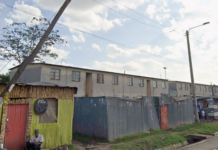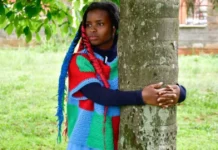By Kelly Were
Eldoret, Kenya — The internet is ablaze with outrage and debate following the controversial presidential pardon of Ezekiel Chelimo, a 77-year-old man convicted of defiling a four-year-old child, who walked free after 14 years behind bars.
Chelimo, who was serving a life sentence handed down in 2011, was among 56 inmates released under a clemency initiative announced by President William Ruto. The program, which aims to decongest prisons and extend mercy to elderly or rehabilitated convicts, has sparked intense public backlash, especially from victims’ rights advocates and online users.
“What a shame! Shame on his family and the president. How do you celebrate such a person?” one social media user posted.
“This man is not rehabilitated. A four-year-old girl was raped. He deserves to finish his sentence,” wrote another.
Despite the online fury, Chelimo was welcomed back with open arms in his rural village of Bugar, Keiyo North, where neighbors still see him as a wronged man. Once a respected elder, farmer, and community mediator, Chelimo has long maintained his innocence, claiming he was framed.
During his incarceration, he lost not only his freedom, but also his eyesight, describing prison life as a “slow death.”
“In prison, you have time to think. For me, it was time to grieve—my life, my family, the injustice I felt,” Chelimo told reporters after his release.
He was convicted of defilement contrary to Section 8(3) of the Sexual Offences Act No. 3 of 2006, following an incident in August 2010 in Kapkatui Sub-location, where he was accused of penetrating a minor aged four years and eleven months. An alternative charge of indecent act with a child was also tabled.
Chelimo lost three appeals in the High Court and Court of Appeal, including one heard by former Chief Justice David Maraga, and most recently had his sentence upheld by Justice Stephen Githinji, who described him as “a real fighterwho doesn’t give up easily.”
Yet, questions remain. Was Chelimo wrongly convicted, or is this an example of justice undermined?
His family believes in the former. His son Timothy Kibet spoke emotionally of the family’s ordeal:
“I dropped out of school when my father was sentenced because all our resources went to his appeal. We’ve suffered for years, but today is a new beginning.”
Reverend Raymond Komen, a local church leader, has urged the government to provide medical and psychological support to Chelimo.
“He comes home with wounds we cannot see,” said Rev. Komen. “We are grateful for his release, but he needs help.”
Human rights organizations, led by Kimutai Kirui of the Centre Against Torture, are now calling for a systematic review of past convictions—particularly those involving the elderly, the vulnerable, or cases mired in doubt.
Meanwhile, Chelimo says he harbors no bitterness.
“If you carry anger in prison, you die before your body does. I want peace. I may not see the sky again, but I feel the sun on my face. That is enough for now.”



















